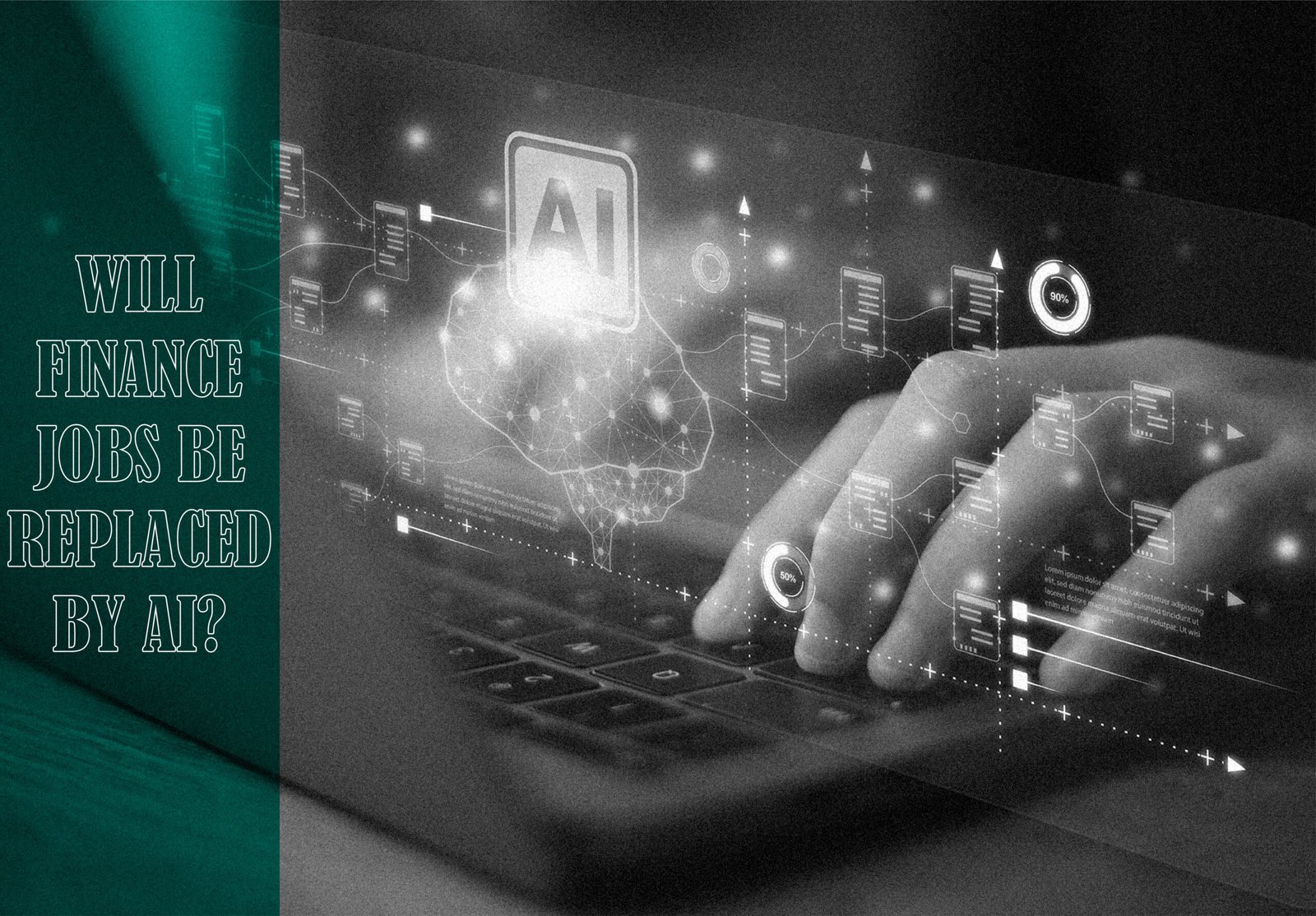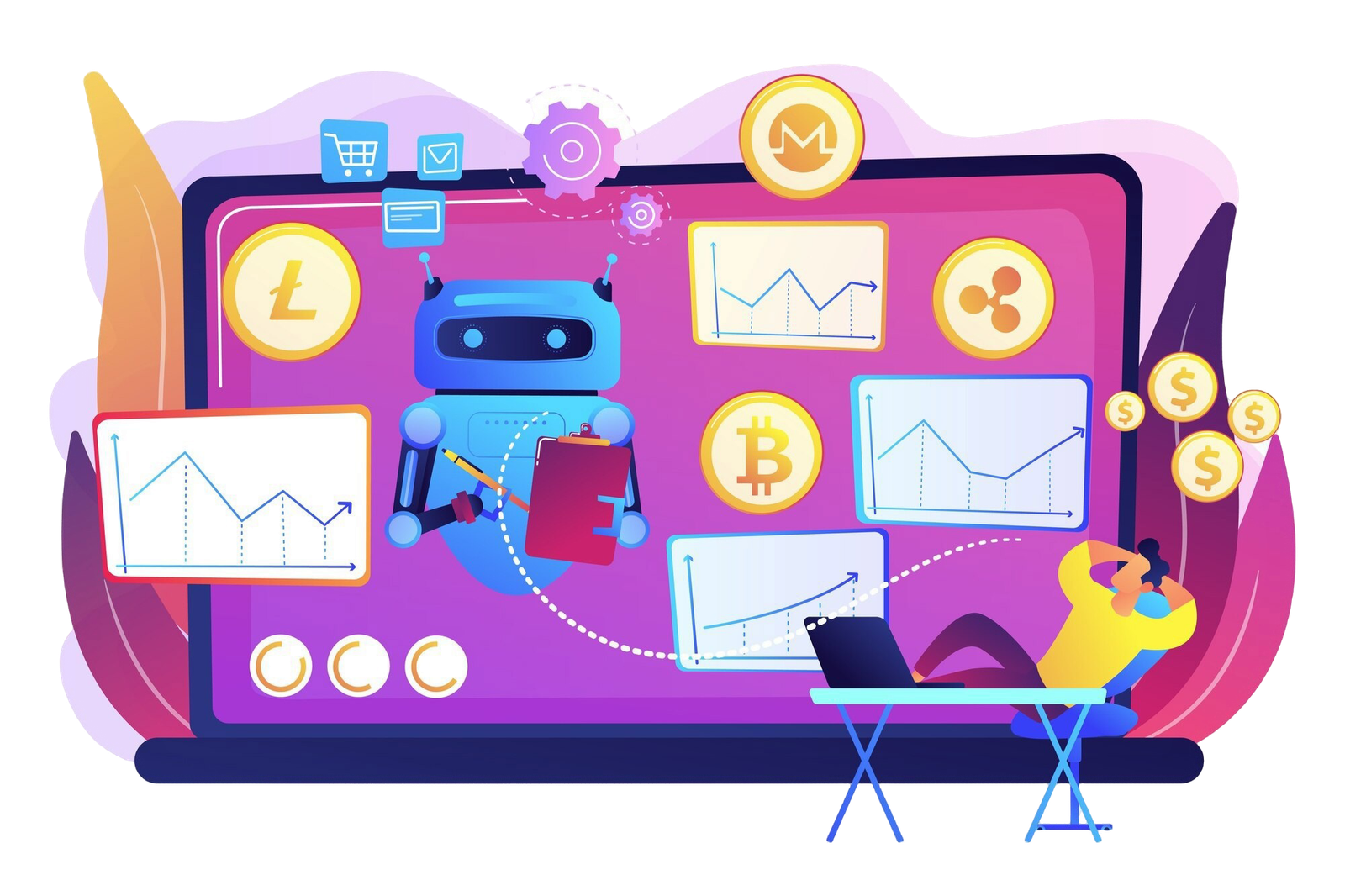This Article will show Will Finance Jobs Be Replaced by AI? And Role of Ai in Finance. Complete step-by-step guide. Include Advantages and Disadvantages with Frequently Asked Questions and Conclusion.
Will Finance Jobs Be Replaced by AI?
The rapid growth of Artificial Intelligence has already sparked controversy in almost all segments, finance being no doubt one of them. Starting from algorithmic trading to customer service bots, AI is progressively finding its position in finance. And here is the question at hand: Will finance jobs be taken over by AI? To do that, we are going to discuss the possibility of AI in finance and the effect it has on employment and whether it is there to complement or eliminate human employees.
 The Role of AI in Finance
The Role of AI in Finance
There are several ways in which AI changes finance as a sector. Traditionally, finance jobs had long-duration repetitive tasks like data entry, transaction processing, and financial analysis. AI is better suited for such jobs wherein large amounts of data can be processed rapidly and efficiently.
Among the most prominent applications of AI in finance are:
- Automated Trading: Systems using AI can scan the market trends and execute trades more quickly than any human; hence trading becomes efficient.
- Risk Assessment: Based on historical data, the system predicts credit risks, frauds, and market trends..
- Customer Service: Banks and financial institutions are using chatbots and virtual assistants to address the customer queries so that human beings do not keep repeating the same thing.
- Financial Advisory Services: robo-advisors with financial planning and investment based on algorithms and data analysis.
- Accounting and Bookkeeping: AI tools can automatically carry out routine tasks, like processing invoices and generating financial statements.
With all these developments, one finds oneself asking whether finance jobs will be completely taken over by AI or human expertise will still have a role in it.
 Advantages of AI in Finance:
Advantages of AI in Finance:
There are numerous benefits AI offers the finance sector. Let’s explore how AI enhances productivity while improving financial services.
-
Boost in Efficiency and Speed
AI processes vast amounts of data at speeds that no human is capable of. The results are faster decisions, faster processing of transactions, and real-time market condition assessments. For example, though a human cannot duplicate high-frequency trading where orders take milliseconds to process, AI makes it possible.
-
Increased Accuracy and Lower Errors
Even small mistakes result in huge losses when financial functions are involved. As a result, the likelihood of human mistake during calculation, data entry, and transaction processing decreases, because AI automates these mundane tasks, thus increasing accuracy and reliability.
-
Cost Reduction
AI reduces the operational cost for financial institutions. Automated routine operations save the cost to organizations on labor, therefore using it for more complex functions and optimizing the way of operation makes businesses more profitable and service cheaper to consumers.
-
Greater Risk Management
AI analytics permits financial institutions to really start understanding and mitigating risk more effectively. AI models can analyze past trends and real-time anomalies, which is pretty much essential for fraud detection, credit risk, and even market crash forecasting. This predictive capability can give businesses better tools to contend with the challenges they didn’t see coming.
-
24/7 Availability
The implementation of AI in finance creates several challenges that are hard to handle, including job displacement. Chatbots, trading algorithms, and virtual assistants work without stop or break, ensuring that 24/7 access is possible, making it convenient for the customers and constant.
 Disadvantages of AI in Finance:
Disadvantages of AI in Finance:
All this comes at a price as stated, and here are the disadvantages of AI in finance.
-
Job Displacement
With AI doing the routine work, more jobs in finance are at the risk of displacement. Even junior accountants and data entry clerks, as well as financial analysts may be replaced by the AI system. It would lead to unemployment for many individuals because they are not equipped to handle jobs driven by AI.
-
Lack of Human Judgment
Its primary ability is to process data and identify patterns, but without human judgment, intuition, or empathy. For complicated financial situations involving subjective decisions-such as client relationships or tailoring advice to specific needs-human expertise will still be inescapable. AI can’t even shadow the kind of reasoning that is fundamentally human, a basis of so much financial decision-making.
-
Bias and Ethical Concerns
It only depends on the quality of the data on which AI is trained. This reflects the fact that if there is bias in the data it is trained on, there will be bias in its decisions as well.. For instance, in finance, discriminatory lending or biased investment advice may result. Bias and transparency in AI systems are still important and difficult challenges to date.
-
Cybersecurity Risks
The more AI-integrated systems are present in the financial operation, the more cyber attacks are made against them. Hackers may attempt to exploit weaknesses in AI algorithms or may use AI to carry out complex attacks on financial establishments. This raises questions about the security and safety of financial data.
-
High Initial Investment and Maintenance Costs
Implementation of AI technologies in finance requires heavy investment in technology, infrastructure, and training at initial stages. In addition to that, AI systems require maintenance, up-gradation, and continuous monitoring to continue their work effectively. Such expenses are not feasible for small-scale financial institutions.
Will AI Replace Finance Jobs?
In the near future, AI is unlikely to replace finance jobs entirely. It will merely change the scenario. Here are a few important facts that need to be known:
- AI and Humans Will Work Together: This is for the reason that, while AI will be useful in repetitive tasks that are also time-consuming and involve data, human expertise can only guide in decision-making that is intuitive, creative, and insightful. In other words, humans will work hand-in-hand with AI in finance rather than being replaced wholesale.
- Job Transformation: Many finance jobs will be transformed rather than lost. Professionals will have to acquire skills on AI, data science, and machine learning to thrive within the profession. New opportunities for managing, training, and refining AI systems should emerge.
- Focus on High-Value Tasks: As AI can focus on low-value tasks that take much time away from finance professionals, they would have extra work effort to spend on higher-value financial planning, advisory, and relationship management activities. This in the end results in more satisfying and cognitively stimulating work in finance.
 Frequently Asked Questions
Frequently Asked Questions
- Will AI make financial advisors obsolete?
While AI-driven robo-advisors may do the job of providing general financial advice, most clients still require human contact for very complex financial decisions. Human advisors will always be essential, especially high-net-worth persons or really complicated financial needs. - Can one rely on AI to manage investments?
AI finds more applications in investment management, which shows a strong performance in algorithmic trading and predictive analytics. However, still, human oversight is required with special emphasis in volatile markets or when it involves critical investment decisions. - Will AI have an impact on finance job opportunities?
Thus, AI is likely to reduce the demand for low-skill finance jobs. But new opportunities in AI management, data analysis, and cybersecurity will emerge. These skills should be upgraded by finance professionals if they want to stay ahead of competition.
 Conclusion
Conclusion
Human jobs are unlikely to be replaced completely even though AI is going to significantly alter the finance sector. AI will automate routine work, increase efficiency, and at the same time present finance professionals with new opportunities. Judgment, creativity, and relationship management will still remain in humans. New capabilities will have to be developed by finance professionals to interact with AI technologies. Rather than a replacement, the future of finance likely will be more of a harmonious integration of human and machine assets into efficient, strategic, and dynamic financial service.


 The Role of AI in Finance
The Role of AI in Finance Advantages of AI in Finance:
Advantages of AI in Finance: Disadvantages of AI in Finance:
Disadvantages of AI in Finance:
 Frequently Asked Questions
Frequently Asked Questions Conclusion
Conclusion
6 thoughts on “Will Finance Jobs Be Replaced by AI?”